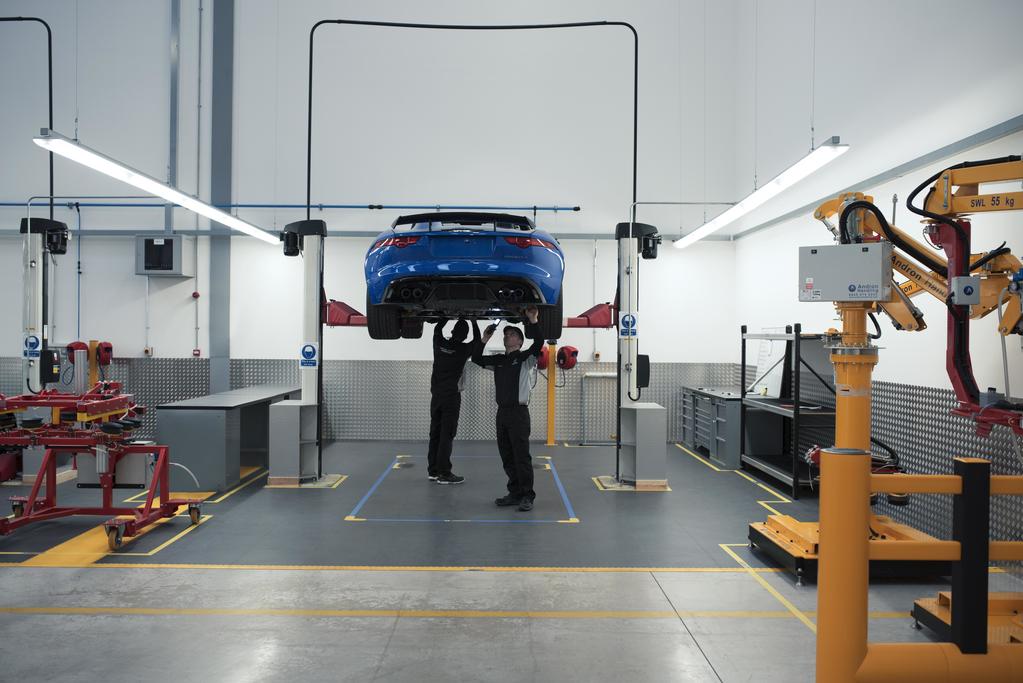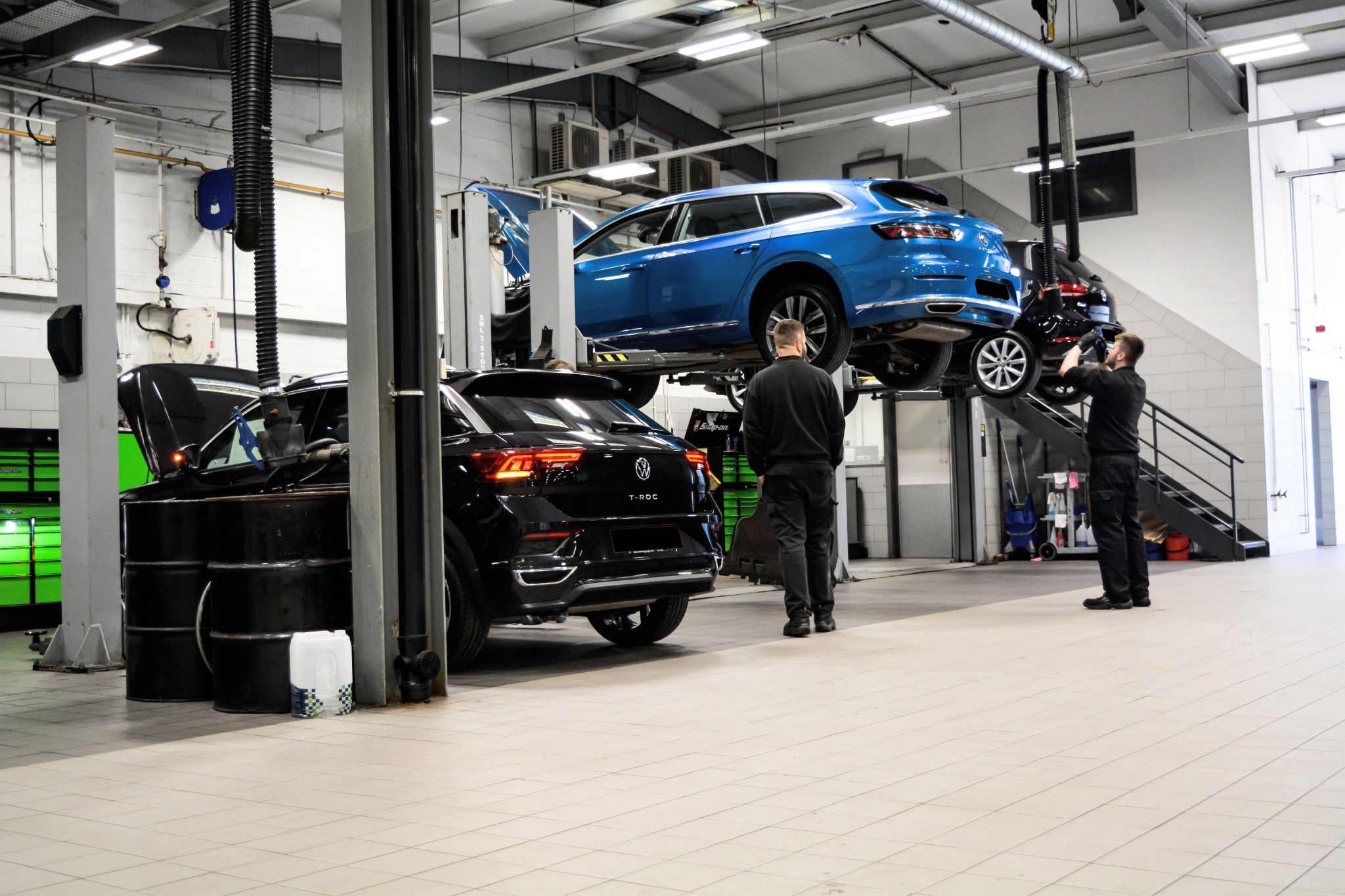- Differences between a Service and an MOT
- Why your car needs both a Service & MOT
- Is a Service the same as an MOT?
- What happens at a Service?
- Reasons why it’s Important to keep up with service schedules
- When does my car need a service? Is my service due?
- FAQS about Servicing and MOTs
- Myths about Car Servicing & MOTs
Here’s a thought process that many of us will have had…
'My car’s passed its MOT, so why do I need to waste money having it serviced? There’s clearly nothing wrong with it, I might as well save the cost of the service.'
Are the two things the same? If your car passes its MOT does it still need to be serviced, and if so, why?
Well, firstly an MOT and a service are not the same thing...
Differences between a Service and an MOT
An MOT is a mandatory test to ensure that your car is roadworthy; a service follows detailed guidelines, set out by the vehicle manufacturer and is designed to keep your car in peak condition.
Let’s look at it this way. You go to the doctors for a check-up. The doctor says everything is fine, you could do with losing a few pounds, your eyesight isn’t 20/20 and you’ve got a bit of a cold, but otherwise you’re fine. That’s your MOT, you’ve passed, but you’re not going to run a marathon anytime soon!
You go to the gym for a fitness test. They change your diet, give you a personal trainer and you literally could run a marathon. That’s your service, prolonging your life and keeping you fitter.
So a car that passes its MOT is roadworthy, but it’s not necessarily running at optimum fitness. Things maybe starting to fail mechanically, the oil may need changing, or the air filter, fuel filter, spark plugs may have to be replaced and doing all this would not only make the vehicle run more smoothly it would also make the car more economical to run.
Whilst both an MOT and a service check similar things, such as tyre tread depth, seat belt anchorings and so on; a service doesn’t just check these things, it replaces some parts, which improve not just your car’s performance, but also its economy and its lifespan.
If you’re wondering ‘Does my car need a service?’, the short answer is yes.

Here’s why your car needs both a Service & MOT
If your car is 3 years old or more, then you have to have it MOT tested. It’s a legal requirement and just as importantly, without a valid MOT certificate, your car insurance is invalid. An MOT test is a legal requirement to ensure that your car is safe to drive and will not cause hazards to any other road users.
MOT History Checker
Check the MOT status and history of any car in the UK using our free MOT Check
Your vehicle registration
Is a Service the same as an MOT?
No. It also measures car emissions and checks criteria against standards set by the Government. It is illegal to drive a car over three years old without a valid MOT certificate and you will be unable to obtain car insurance without one.
A service is a bit like an annual health check for your car. Not only does it keep your car running efficiently and safely but it will also go some way to maintaining its value, especially if you use a franchised dealership where original parts will be employed by manufacturer- trained technicians.
If servicing is done regularly, it should be relatively painless. Any little niggles can be addressed before they become an issue and threaten the long-term health of your car. If your car has not been serviced for years, however, the safe and healthy running of your car may be compromised.
Like us all, cars need a bit of attention every now and then. Filters get clogged, oil needs changing and batteries run down so don’t be tempted to miss or delay a service to save money - it could cost you in the long run. A poorly maintained car can result in poor fuel economy in the short term and in big repair bills further down the road.
While an MOT does cover several areas that are also checked during a service, it looks at the absolute minimum requirements for a car to be safely used on UK roads, such as functioning lights and wipers, safe bodywork and no fuel leaks. Find out what an MOT checks for on our blog.
A car service will not only check these basics but will also help ensure that the car is running as efficiently as possible, giving the car longevity and keeping running costs down.
If you keep up to date with your car’s servicing schedule, as per the manufacturer’s guidelines, your vehicle should sail through its MOT without any additional work being required. A car without regular servicing, however, could easily fail its MOT and need costly work to get it back on the road legally.

What happens at a Service?
Just as every person’s health is different, each car needs individual attention too. Based on manufacturer’s guidelines, different makes and models require action in various areas from year to year. So the list of maintenance and checks will vary from car to car.
For this reason, it’s always better to get your car serviced at a franchised dealer than at a general garage. Franchise technicians are specialists in the particular make of your car, understanding the different attention required by every model and each distinct technical specification in the range.
A franchise technician will also be able to apply any software updates to your vehicle that have been issued by the manufacturer, something that your local garage might miss or be unable to do.
So if you’re wondering ‘well, what do they do in a car service?’, we may just have the answer…
An interim service will likely include the inspection of:
- Lights
- Wipers
- Battery
- Exhaust
- Tyre tread and pressure
- Brakes
- Steering
- Shock absorbers
- Suspension
And replacement of:
- Oil and oil filter
- Windscreen wash
- Power steering fluid
In addition to these items, a full service may also address:
- Auxiliary drive belt
- Wheel alignment, bearings and balance
- Fuel filter (diesel engine)
- Spark plugs (petrol engine)
- Air filter
Refer to your manufacturer’s handbook or speak to your local franchise dealer for a model-specific list.
Reasons why it’s Important to Keep up with Service Schedules for Your Car
Better safety
Failing to have your car serviced at intervals as per the manufacturer’s recommendations can have a negative effect on its safe running. Cars take a lot of pounding on our roads; potholes, rain, snow and mile after mile mean that there’s plenty of wear happening. You may think your car feels OK, but for your safety, and that of your passengers, regular servicing highlights out-of-sight problems, like cambelt issues, and helps provide you with peace of mind.
Save money
Not servicing your car regularly risks you having to fork out for damage caused by not maintaining the car’s parts. We’ve probably all thought, “HOW MUCH”, when booking our car in for a service, but don’t let the upfront cost of a service fool you. Not having your car serviced can be much more costly in the long run. Regular servicing identifies problems early, which if left would become costly and expensive to rectify; the replacement of oil and air filters during your service also helps make your car more fuel efficient.
Last longer
Very simply, a car is like a human, the better you look after it, the longer it’s likely to last. If you want your car to have a long life and to enjoy many years behind its wheel, then you need to take care of it by having it regularly serviced.
Sell for more
when the time comes for you to change your beloved car, you’ll really notice the difference in value if you’ve not been servicing it regularly. A full service history, or at least proof that you’ve been having your car serviced regularly, will attract more buyers, who will be willing to pay a higher price and if your part exchanging it with a dealership, this service history will make it worth more.
Finance & warranty
As part of your warranty, and possibly your car finance agreement, it will also be necessary to keep up with the correct servicing schedule. Each time you get your car serviced, ask the technician to stamp your book as proof. This will be a valuable sales tool if/when you decide to part company with your car. A full service history helps show that a vehicle has been loved and cared for.
When does my car need a service? Is my service due?
Car service intervals vary depending on brand and model. You should plan to have your car fully serviced at least every 12 months or at mileage stipulated by the manufacturer - check your car’s manual for details. To keep your car running economically and to prevent unanticipated problems becoming an issue, it’s best to stick to this schedule. After all, prevention is better than cure.
Most, but not all cars now have an on-board computer that will give an indication of when the next service is due. This clock should be reset whenever a service is completed so that the car knows that action has been taken. The garage should also be able to let you know when the next service will be due, giving you the chance to plan ahead and budget.
FAQS about Servicing and MOTs
Myths about Car Servicing & MOTs
'My car is roadworthy for the length of the MOT test certificate'
It’s true that an MOT test certificate lasts for 12 months, but it can only ever be a snapshot of the condition that your car was in on the day it was tested. A year is as long time, you could get married have a baby and move house in that time, so there’s certainly time for your car to deteriorate and become unsafe. Don’t use an MOT test pass in January to reassure you that your car is safe in June. Check your oil and fluid levels, tyre pressure and lights regularly.
'My car’s passed its MOT so I know it’s in good mechanical condition.'
No. An MOT pass means that your car has met the MINIMUM road safety and environmental standards set out in the test by the DVSA. Nothing is dismantled in an MOT test, it’s impossible to give any indication at all of the vehicle’s mechanical condition. An MOT test gives NO reassurance as to the mechanical condition of your car
'The law says you HAVE to have your car serviced.'
No. There’s no legal requirement to have your car serviced. Whilst a car with no MOT is not insured, the same does not apply to a car that has not been serviced; however, while you may think you’re saving yourself a few bob by not servicing your car, you’re storing up trouble down the road. A small problem, left to escalate, will cost much more to rectify, so not having your car serviced is just false economy.
